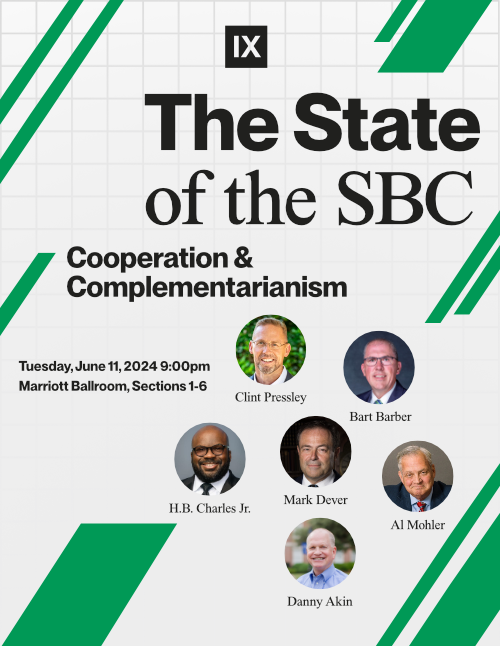Can Single Men Serve as Elders?
One of the most significant early steps we made in the journey of church revitalization at First Baptist Church in Durham was filtering deacon candidates according to biblical qualifications. At that time, FBC’s polity consisted of a single elder, a “board” of deacons, a slew of committees, and congregational authority expressed in voting at church conferences. The deacons exercised an unbiblical role as undershepherds, working with “the pastor” to achieve the ministry of the church. Deacons were elected by a democratic process with almost no filtering at all—the top eight vote-getters simply got in. Often, this meant the community’s most successful business leaders or hardest working volunteers became deacons. In short, it was a popularity contest.
So, when we began to require deacon candidates to give testimonies of their qualifications based on 1 Timothy 3 and Titus 1, things began to change in a remarkable way. Since then, the roles of elder and deacon have themselves been reformed by biblical standards, as the process of choosing qualified candidates for both offices has also gotten more robust and healthier.
However, it’s possible to use these passages in 1 Timothy and Titus in a wooden way and therefore filter out godly candidates whom the Lord has qualified to serve. But before we overly filter, we must make sure we’ve “rightly divided” (2 Tim. 2:15) the relevant passages. To be overly restrictive based on these passages can prove to be almost as harmful as to have little or no restrictions at all.
So, let’s get to the question at hand: can single men serve as elders, or must they be “filtered out” for not meeting the “husband of one wife” qualification (1 Tim. 3:2; Tit. 1:6)? In short, I believe filtering out single men is overly restrictive, and therefore causes churches to miss out on some rich blessings the Lord has given.
This restriction wouldn’t even come to mind except that that the passages seem to be teaching it. But a closer look shows that such an approach leads to unhealthy, even absurd conclusions. For example, it would eliminate Jesus, Paul, and (it seems) Timothy from the office of elder. It would also negate the powerful case the Apostle Paul makes in 1 Corinthians 7 for the benefits singleness brings to ministry. Paul celebrates single servants as being “free from concern” and able to focus completely on how they may please and serve the Lord, living in undivided devotion (1 Cor. 7:32, 35).
Based on this, single men who serve as elders can highlight these very truths in the life of the congregation, especially since it’s so unusual, at least in the Baptist churches I’ve been around. Just as married elders can live out in front of their congregations the immeasurable value of a healthy marriage and godly parenting, so also can a single elder live out the superior aspects of the single life, as celebrated in 1 Corinthians 7.
Beyond this, to forbid single men from serving as elders based on exegesis of 1 Timothy 3 and Titus 3 leads to some unhealthy parallel conclusions. For example, would not a widower be excluded from serving, since he is not presently the husband of one wife? One can imagine a man losing his wife and his ministry in the same day, all from an overly restrictive interpretation. Similarly, what about childless men, or fathers of only one child? Wouldn’t they be excluded? After all, Titus 1:6 seems to require children.
I believe the same way we handle that text applies to how we handle the “husband of one wife” requirement. If a man has children still living at home, they must be submissive to his authority, not wild or disobedient; if a man is married, he must be a “one-woman man,” that is, openly living out Ephesians 5’s Christ-church analogy of marriage. But the text doesn’t require either a wife or children in order to serve as an elder.
Of course, there are some challenges for single elders in the life of the congregation. Their ability to teach on marriage and parenting may be questioned, though it ought not to be. Jesus and Paul were both single men, and they taught on both marriage and parenting. It’s not necessary that Bible teaching must in every case be supplemented with role-modeling. Beyond this, the single elder must walk in open holiness with members of the opposite sex, as Paul commanded Timothy, saying he should deal with younger sisters-in-Christ “in all purity” (1 Tim. 5:2). If he’s seeking a wife, there may be some awkwardness in the courting process if she ends up being a member of the congregation. But these practical challenges must not outweigh the benefits of singleness Paul expounds in 1 Corinthians 7.
To sum up, it’s essential that the filtering process of elder candidates be conducted according to biblical standards. This means that unqualified men must be filtered out. But this also means that qualified men must not be filtered out by faulty exegesis. Godly single men may serve as elders of a local church, and their churches will be richly blessed by their single-minded devotion to the Lord in shepherding his flock.









